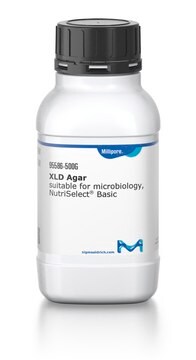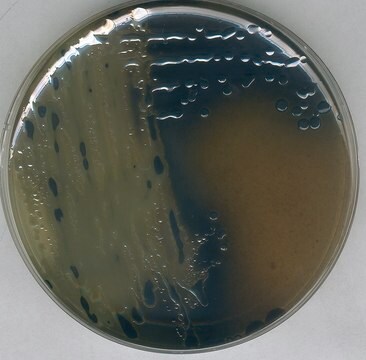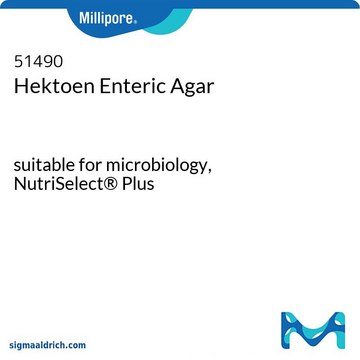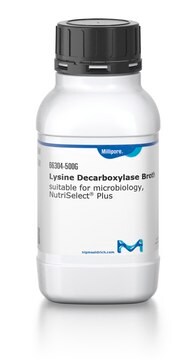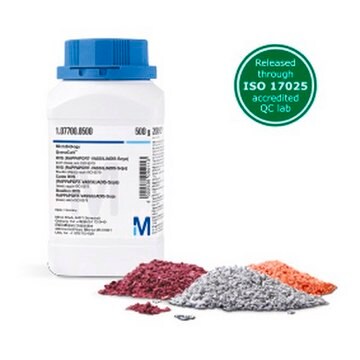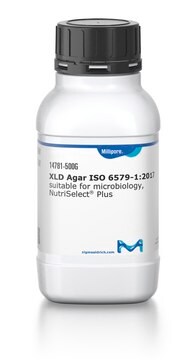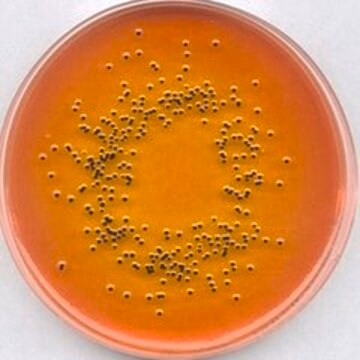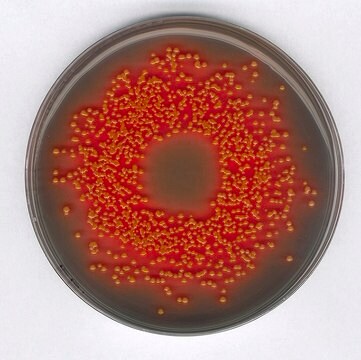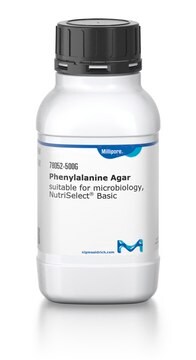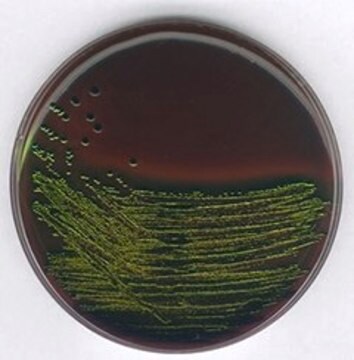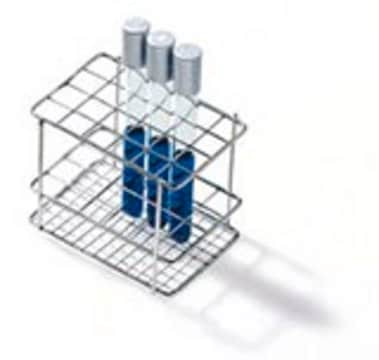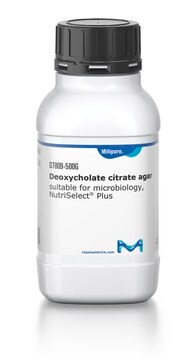95388
Bismuth sulfite Agar
suitable for microbiology, NutriSelect® Basic
About This Item
Prodotti consigliati
agenzia
according to GB 4789.4-2016
Livello qualitativo
Sterilità
non-sterile
Forma fisica
powder
Durata
limited shelf life, expiry date on the label
Composizione
agar, 15 g/L
bismuth ammonium citrate, 1.85 g/L
brilliant green, 0.025 g/L
disodium hydrogen phosphate, 4 g/L
D(+)-glucose, 5 g/L
iron(II) sulfate 7x H2O, 0.55 g/L (equivalentto 0.3g/L iron(ll) sulfate water free)
meat extract, 5 g/L
mixed peptone, 10 g/L
sodium sulfite, 6.15 g/L
Produttore/marchio commerciale
NutriSelect® Basic
tecniche
microbiological culture: suitable
pH finale
7.6±0.2 (25 °C)
applicazioni
clinical testing
environmental
food and beverages
microbiology
Compatibilità
selective and differential for Salmonella spp.
Applicazioni
The prepared agar is turbid and greenish-yellow.
Nota sulla preparazione
Nota a piè di pagina
The designations basic, plus, or prime are added to indicate the quality control level, from basic quality control to standard QC plus to prime for full regulatory compliance.
Note legali
Indicazioni di pericolo
Consigli di prudenza
Classi di pericolo
Aquatic Chronic 3
Rischi supp
Codice della classe di stoccaggio
11 - Combustible Solids
Classe di pericolosità dell'acqua (WGK)
WGK 3
Punto d’infiammabilità (°F)
Not applicable
Punto d’infiammabilità (°C)
Not applicable
Dispositivi di protezione individuale
Eyeshields, Gloves, type N95 (US)
Scegli una delle versioni più recenti:
Possiedi già questo prodotto?
I documenti relativi ai prodotti acquistati recentemente sono disponibili nell’Archivio dei documenti.
I clienti hanno visto anche
Articoli
Salmonella contamination is the second leading cause of food-borne illness worldwide. Controlling outbreaks of Salmonella is an important task for food regulators, restaurants and the food industry in general. The Salmonella family includes over 2,300 serotypes of bacteria, but two types, Salmonella enteritidis and Salmonella typhimurium, are responsible for about half of all human infections. Most outbreaks of Salmonella are traced back to dairy, poultry and meat products, but Salmonella can grow on nearly any food. Chicken, eggs and their derivative products are particularly high risk.
Il team dei nostri ricercatori vanta grande esperienza in tutte le aree della ricerca quali Life Science, scienza dei materiali, sintesi chimica, cromatografia, discipline analitiche, ecc..
Contatta l'Assistenza Tecnica.